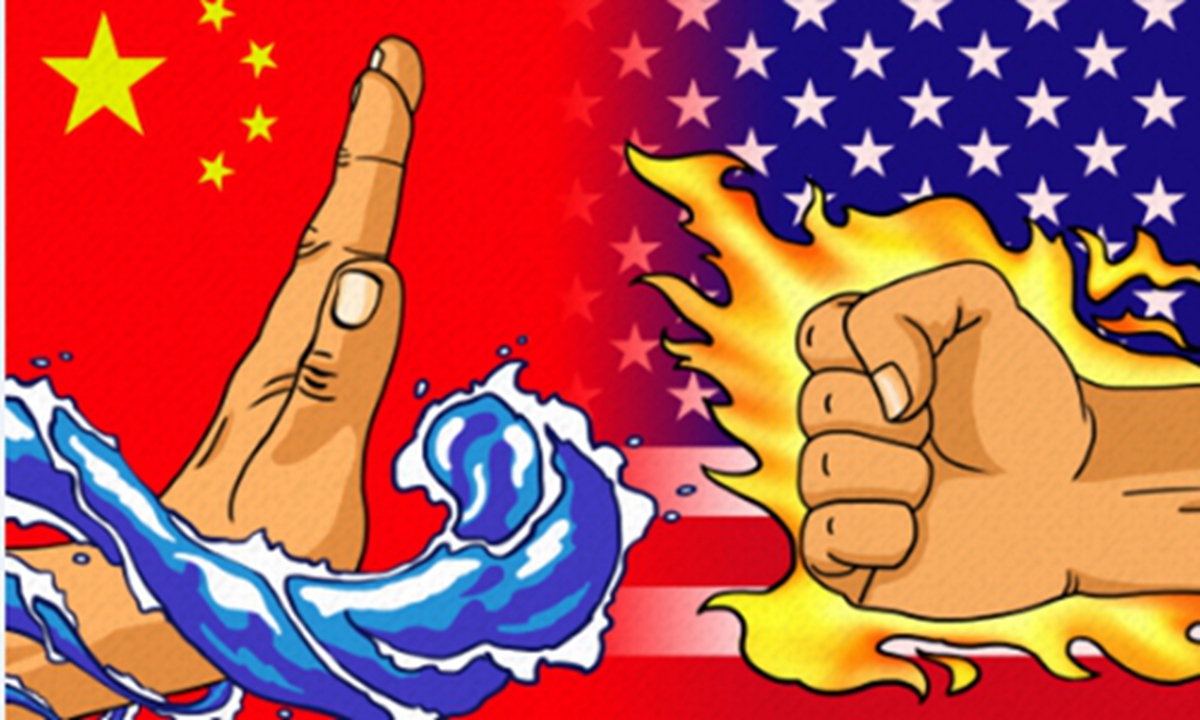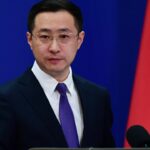Beijing’s recent sanctions against Skydio, America’s largest drone manufacturer, underscore the need for a comprehensive understanding of the interdependence between the Chinese and American economies, as well as the fundamental flaws in Washington’s strategy toward China.
Beijing’s swift response to US arms sales to Taiwan has profoundly impacted Skydio’s supply chain. The company has been forced to restrict battery supplies and urgently seek alternatives until spring 2025. It’s reported that it also sought help from senior officials at the White House, hoping that the US and its allies could assist in resolving the “battery supply disruption.” This predicament facing the company highlights the pressing need for a strategic shift in US-China relations.
“This is an attempt to eliminate the leading American drone company and deepen the world’s dependence on Chinese drone suppliers,” Skydio CEO Adam Bry said in a letter to customers, first reported by the Financial Times.
The company, which provides drones to Ukraine’s military and Taiwan’s fire agency, manufactures its products in the US but still relies on a global supply chain for many of its components; one of the most critical components, batteries, are still sourced in China.
This incident serves as a wake-up call: Beijing’s countermeasures against US companies are reasonable and legitimate decisions made to safeguard China’s core interests and uphold the basic principle that drones should not be used for warfare. More importantly, this shows that China will no longer merely defend against and absorb US crackdown and containment; instead, it will increasingly adopt countermeasures.
China has long possessed such capabilities. Since the Trump administration initiated the trade war in 2018, Washington has pursued a strategy of “decoupling” from China under the pretext of national security. The Biden administration has institutionalized, systematized and fully advanced sanctions and containment, particularly by continuously tightening restrictions on high-tech exports and investments to China.
However, as the Skydio case demonstrates, this approach is backfiring. The company’s inability to secure a supply of essential components, such as batteries, exposes the painful reality that the US tech industry remains deeply dependent on Chinese supply chains.
This situation is merely a microcosm of America’s broader dependence on Chinese manufacturing.
As containment intensifies, more US industries, businesses and the entire economy will pay an increasingly heavy price.
The RAND Corporation’s recent report “The Effectiveness of U.S. Economic Policies Regarding China Pursued from 2017 to 2024,” states that an assessment of US economic policies toward China since 2017 shows these policies have made “limited progress” in promoting fair trade… Some policy measures, particularly tariff increases, have negatively affected US economic growth, manufacturing employment and exports.
This judgment is based on China’s restraint from taking stronger countermeasures, reflecting self-inflicted damage from US containment. Once China begins to counter, the situation will not be so simple.
US restrictions have failed to contain China’s technological progress and have stimulated Beijing’s determination to pursue self-reliance. Since 2018, China’s manufacturing capabilities have strengthened, with breakthroughs in electric vehicles, artificial intelligence and other frontier technologies.
Beijing’s response to external pressure has always been methodical and strategic, aimed not merely at resisting pressure but at consolidating and advancing China’s established development policies. While Washington focuses on restrictions and containment, China is diversifying its markets, strengthening its manufacturing base, deepening integration in global supply chains, and comprehensively expanding its global market presence.
China will not deliberately seek to decouple its supply chain and industrial chain from the US, nor will it make replacing the US a strategic goal.
China is focused on exploring solutions to its own economic development issues, thereby enhancing its economic competitiveness. As these goals are continuously achieved, China’s overall capability to counter the US will further strengthen.
China does not expect Washington to back down immediately, and the future competition between Chinese and American manufacturing and technology worldwide will become more intense, complex and fierce, potentially lasting for an extended period and significantly reshaping the global economic landscape.
However, the US will face unprecedented consequences when China begins to counter.
More US companies and enterprises, such as Skydio, will likely become victims of America’s decoupling strategy with China.













